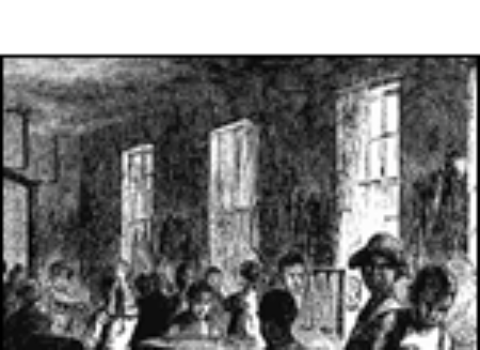Alan Tonelson is a Research Fellow at the U.S. Business & Industry Educational Foundation and the author of The Race to the Bottom: Why a Worldwide Worker Surplus and Uncontrolled Free Trade are Sinking American Living Standards (Westview Press). He wrote “Up From Globalism” in the January 2010 issue of Harper’s Magazine.
For all its intensity, nearly all the outrage sparked by news about the U.S. Olympic team’s Chinese-made uniforms has been pathetically superficial and downright useless. Even worse, the furor is shaping up as another lost opportunity for Americans to learn why jobs and production really move overseas, what the full costs have been, and how this tide can be stemmed and even reversed.
After all, if most of the fulminating lawmakers and pundits really were exorcised about Ralph Lauren’s decision to manufacture even high-end clothing in China, and the U.S. Olympic Committee’s indifference, and if they actually did want to revive the apparel industry, they’d be talking about scrapping the U.S. trade agreements that have veritably kicked so many companies and entire industries overseas—and for which U.S. multinational firms lobbied so hard.
Of course, this indictment needs to exclude long-time vigorous critics of these trade agreements, like Ohio Democratic Senator Sherrod Brown. And although Senate Majority Leader Harry Reid’s proposal to burn the Olympic uniforms and start over with American-made products was a calculated headline-grabber, and the Nevada Democrat has rarely prioritized trade policy issues, he has at least opposed most ill-conceived trade deals.
As for the rest, however, what else could be expected of two decades of decisions that have handed businesses the option of supplying the lucrative, high-price U.S. market from super-low cost, practically regulation free foreign production sites like China and Mexico and Vietnam?
The impact on labor-intensive sectors like apparel has been especially devastating. Since NAFTA went into effect at the start of 1994, inflation-adjusted apparel output in the United States has nosedived by an astonishing 82 percent on a seasonally adjusted basis. An almost identical share of the nearly 835,000 jobs then generated by the industry have been destroyed. And imports now account for between 90 and 99 percent of virtually all the varieties of clothing bought by Americans.
Policy types have long treated apparel as a throwaway industry. But it has always been a valuable source of family-wage jobs for Americans with modest skill and education levels—exactly the types who desperately need work nowadays rather than the unemployment compensation, food stamps, and other forms of welfare on which so many are forced to rely.
Worse, apparel’s woes inevitably have bled into the more capital-intensive apparel textile sector and other apparel supplier industries. And massive trade-related losses have crippled countless advanced manufacturing industries as well.
Maybe the only silver lining of the uniform furor has been the temptation it’s given many showboats to flaunt their actual or willful ignorance about manufacturing issues. One outstanding example: freshman New York House member Nan Hayworth. She eagerly told Fox News host Greta Van Susteren last night that apparel making could return to the United States if only burdensome regulations were rolled back.
Not that considerable regulatory reform isn’t needed. But does Hayworth (who like so many other free market ideologues endorsed all three NAFTA-like trade agreements approved by Congress last fall) really think that the global playing field can or should be leveled that way? And if choking American factory towns and cities with China-like pollution and turning domestic plants into death traps doesn’t do the trick, would she repeal child-labor laws to boot?
Ironically, two of the Washington figures who for the time being have conducted themselves with the greatest dignity during the uniform flap have been House Speaker John Boehner and President Obama.
The Ohio Republican has never met an outsourcing-focused trade deal he didn’t like. He’s also single-handedly blocking Congressional approval of a bill that could overturn some trade policy blunders—the anticurrency manipulation passed by the Senate last fall, and that enjoys majority support in his own chamber. But at least he had the decency to make his uniforms comment terse.
And the always loquacious White House incumbent, who has morphed from a trade policy critic during his first presidential run to a standard outsourcer as chief executive? So far, not a peep.
© USBIC Educational Foundation
























































































